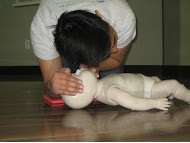
When you have a child medical emergency, it is always important to know what to do. Knowing when to call 99 or take any other step is crucial for emergencies such as serious falls or breathing problems. At such situations, it is normal to get anxious, but you should always try to remain calm in order to handle the situation in the best way possible. This article provides guidelines on common medical emergencies facing children and the level in which you should call 999 or any other medical emergency services.
Respiratory distress
This is a medical emergency that involves difficulty in breathing whereby the child fails to take in enough oxygen. This problem may be caused by asthma, pneumonia, chocking or any other infection. Symptoms of respiratory distress include wheezing, coughing, labored breathing or grunting.
When to call for child medical emergency
- The child is turning blue around the mouth.
- The condition is getting worse instead of improving.
- The rate is breathing is greater than 50-60 breaths per minute.
Broken bones
Children are at a higher risk of suffering from broken bones compared to adults. Despite that the injuries may not be life threatening, the child should be taken to a hospital emergency department for check up. Call for emergency when:
- The bone is protruding out of the skin.
- There is trauma to the neck and head.
- The break is too severe that you cannot relieve the pain.
Diarrhea/vomiting
Diarrhea and vomiting will require emergency if a child gets dehydrated. Sign of dehydration includes dry mucus membrane, sunken eyes and low amount of urine. You should call child medical emergency services if:
- There is unrelenting abdominal pain or severe cramping.
- The child does not respond.